It came as a surprise to many when early in 2018 the Motor Fuel Group announced its acquisition of MRH at the time the UK’s biggest independent fuel retailing group. But for the management team at MFG it was the realisation of yet another great opportunity on a journey which began in 2011.
That was the year when MFG was acquired from its founders by a new management team which included William Bannister as chief executive officer, Jeremy Clarke as chief operating officer and Tom Biggart as chief investment officer in partnership with oil services magnate Alasdair Locke, as chairman and co-investor.
"We did a management buy-in I think it was the biggest of that year of circa £50m," explains William. "Patron Capital and Investec Bank were our very good private equity partners.
"We created a very detailed business plan. We believed we could use the platform of MFG to become a consolidator in a very fragmented sector. We have very good people, and with luck and hard work, that plan has come to fruition."
Scrolling back, the MFG team was honed over many years. William, whose background was in commercial development investment, got into the fuel retailing sector by default, when around 18 years ago through his business Scottish Capital Group he bought a property company that included two petrol stations. That led him to work on more projects with BP, gaining a certain amount of expertise, understanding the operators and how things worked, but not actually operating.
He was then involved in sorting out the collapsed Fuelforce business: "We raised circa £109m in nine months from the assets," says William. "But in the process we got to know a lot of people in the industry."
One of those people was Jeremy Clarke, who worked for Murphy Oil, which owned the Murco brand, and bought 76 of the Fuelforce assets.
"Having looked at the oil companies, we very much admired Jeremy’s operating model and what he did at Murco," explains William. "At the same time we came across Graham Peacock and sold him some really nice sites and got to know him." (The two share a love of vintage collections Graham planes, and William tanks.)
"We (Tom and I, with our chairman Alasdair at SCG) then bought Petrol Express out of the AIM market and did a sale and leaseback to Murphy Oil. All this meant Jeremy, Tom and I were working closely together very hard on complicated transactions.
"Then there came a point in 2011 we noticed that our fuel portfolio of assets was very robust. We looked at the market. Jeremy was then in a situation that Murphy had decided to exit the UK. Meanwhile, Tom and I had been looking at a couple of other businesses, both of which we subsequently bought Synergie Holdings; and the Motor Fuel Group."
They got the keys to MFG (based in St Albans) on December 22, 2011 and apart from Jeremy were joined by key people from Murphy Oil including Jim Mulheran and Tony Walker. "We felt there was a great opportunity to buy sites and be a consolidator, and that’s what our investors bought into," says William. "We knew Graham had been doing it early on very effectively and had taken some great businesses from the oil majors. The model we developed we could scale by an extra 50 sites and only need three members of staff." From day one they had an 800-page spreadsheet that modelled the change in every site from direct-managed to contract management.
"I’d worked 23 years in commission operation," says Jeremy. "The idea wasn’t just to replicate what had been done at Murphy Oil, but to do it better. We had 17 staff. It was hairy. I’d come from the safe haven of an oil company and we inherited a business that was under severe stress. For the conversion from direct management to commission operation we were reliant on some excellent operators who I’d known for 20 years, who stepped on board and trusted us. Those relationships across the business are key."
The different personalities of management trio William, Jeremy and Tom complement each other: "It’s exciting and it’s fun," says William. "Our team is the best in the business. We work damn hard, the timing’s been brilliant, but we’ve had some luck."
The strong foundations the MFG management team had created through financial discipline, attention to detail, and being very ’hands on’, meant it could take advantage of the ’luck’ when it came along.
Hence the acquisition of Murphy Oil’s retail assets in October 2014, which included 226 sites and the Murco dealer business. In April 2015 MFG bought 90 sites from Shell; and purchases of various dealer groups in the next two years added a further 60 sites.
Then in 2015 MFG changed investors through the MBO of the business with private investment company Clayton, Dubilier & Rice for £500m.
"We needed to take the business to a level where we could be best in class and the biggest," explains William. "As a partnership we felt CD&R were the right business to do that. They have an operated partner model; they have helped us find the right people and ’professionalised’ us. They don’t run this business, but they have been very positive in terms of guiding and assisting us going from A to B."
Then in 2018 came the MRH deal. Discussions had taken place at a very high level between the respective private equity houses (Lone Star in the case of MRH). "We’d known the business for a long time and had huge respect for what had been created," says William. "We were of a size where you’re looking at the next move." The £1.2bn MRH deal completed in October 2018 and cleared its final regulatory hurdle in December, after the Competition and Markets Authority accepted MFG’s undertakings to dispose of 38 sites 32 went to Graham at SGN Ltd.
"Since working with CD&R we realise we have to improve our retail and food-to-go offer," says William. Last year MFG did 44 site redevelopments including knock-down rebuilds, extenstions and refits 60 are planned for this year, including a programme of 30 standalone Starbucks drive-thru restaurants.
"With the digestion of the MRH business, we’ll have grown roughly 20 times in seven years, and we’re nearly 100 times more profitable," says William.
"The bigger you are, the more options you have. We still have ambitions to grow, and organic growth is key. But being the biggest is not an ego trip. We’re in this business because we love it."
biog
William Bannister: (left) chief executive officer, MFG
2011-present: With his executive team William led the acquisition of MFG, a 48-site business, in 2011 for £50m. In June 2015 an MBO of the business by the executive team was completed with private investment firm Clayton, Dublilier & Rice for £500m.
1997 to 2011: William has over 30 years’ experience in property investment, asset management and corporate rescue and was the founding director of Scottish Capital Group (SCG), a property investment and asset management group primarily active in London, the Midlands and Edinburgh. SCG focused on strategic development, corporate recovery and investment in the fuel sector.
Jeremy Clarke: chief operating officer, MFG1989-2012: Jeremy has 30 years’ experience in forecourt retailing starting with Murco Petroleum in 1989 as an area retail manager, progressing to marketing director in 1997. He spent 18 months in the USA with parent company Murphy Oil, working in partnership with Walmart. He later became the driving force behind the growth of Murco’s shop offer and co-owned network.
2012 to present:In January 2012 Jeremy became part of a new management team that acquired MFG.
MFG timeline
2001: Motor Fuel Group was set up by Sailesh Sejpal and Sharad Raja, claiming eighth position in the inaugural Top 50 Indies in 2006 with 27 sites.
2011: MFG was acquired for £50m by a new management team headed by CEO William Bannister; Tom Biggart CIO; Simon Lane CFO; Alasdair Locke, chairman and co-investor. Private equity partners Patron Capital and Investec Bank. Started with 48 sites.
2012: Jeremy Clarke joined the management team in the January as COO.
2014: MFG completed the acquisition of the retail assets of Murco Petroleum, which today includes 190 Murco-branded dealers.
2015: In April MFG acquired 90 Shell sites.
2015: In June an MBO of the business by the executive team was completed with private investment firm Clayton, Dubilier & Rice for £500m.
2016: Acquisition of Synergie Holdings with 19 sites and Roadside Group with 10 sites.
2017: Acquisition of four sites each from FW Kerridge and Burns & Co; nine sites from Manor Service Stations; 14 sites from the Golden Cross Group.
Mar 2018: MFG (439 sites) announces the £1.2bn acquisition of the UK’s largest independent forecourt operator MRH (491 sites). The deal included a wholesale and retail fuel business in the Channel Islands and Isle of Wight.
Dec 2018: MFG clears Competition and Markets Authority requirements by agreeing to sell 38 sites.
























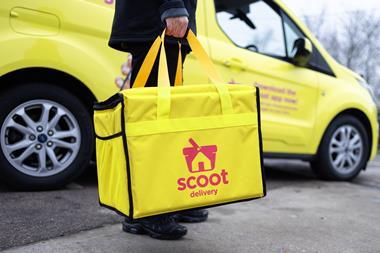
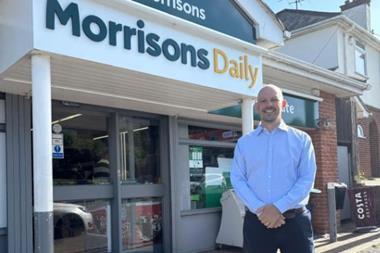
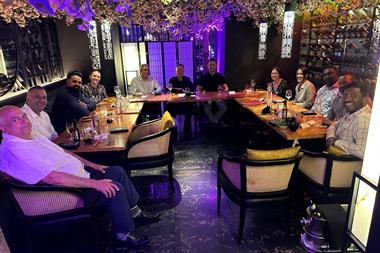
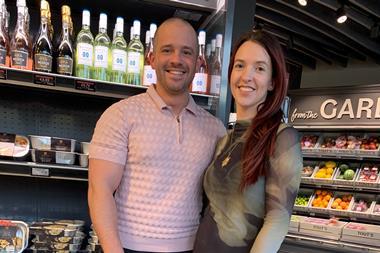
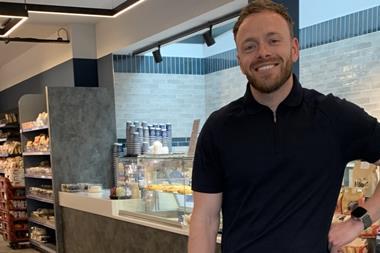
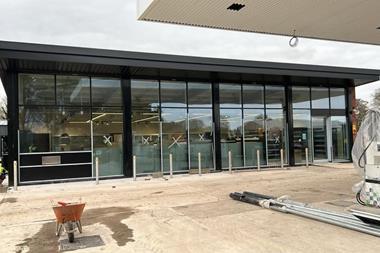
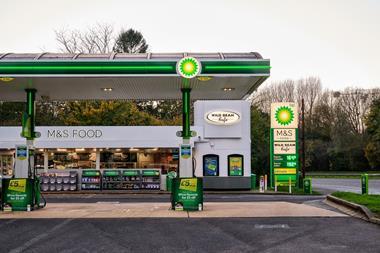
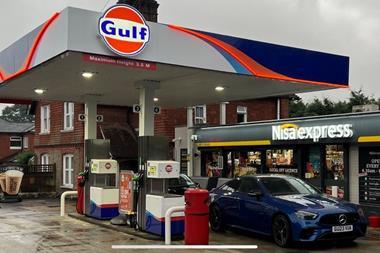
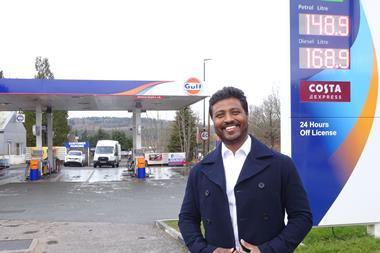
No comments yet